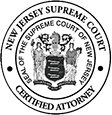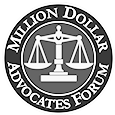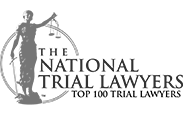If you have a loved one in a nursing home, you trust the staff at the home to care for him or her thoroughly, carefully, and gently. However, this kind of care doesn’t always happen. If your loved one has been hurt by a caretaker’s negligence or malice, you are justified in wanting to file a personal injury claim on your family member’s behalf.
While doing research for your claim, you may have been confused by some terminology. This blog is meant to help you understand what terms you may see when you file a nursing home abuse claim. Some of these terms are specific to your situation, and some apply to personal injury cases in general.
- Plaintiff. The person or group filing the claim is the plaintiff-in this case, you.
- Defendant. The nursing home and their insurer is the defendant or the entity you are accusing.
- Arbitration. Arbitration is a faster and easier way to resolve a personal injury claim. Instead of going to trial before a judge, you face the nursing home and their insurer in front of a neutral third party, called an arbitrator, who decides on the case.
- Complaint. This term refers to a formal legal document that starts the claim. It will state your grievances and what compensation you are seeking.
- Prayer for Relief. In your complaint, you include a prayer for relief, stating what compensation you think is fair.
- Answer. After you file your complaint, the defendant will file their answer. This document will tell you and the court whether the defendant accepts your allegations or believes them to be false.
- Contingency Fee. Sometimes lawyers will agree to only be paid if you win your case. This form of payment is called a contingency fee. Their fee depends on if you win, and if you do, the lawyer gets a portion of your compensation. If you don’t win, you owe the lawyer nothing.
- Tort. This term refers to any wrongful act that isn’t a crime or a breach of contract.
- Negligence. Many nursing home injuries are caused by negligence, meaning the nursing home was careless. To show negligence, your case must meet four requirements:
- The nursing home had a duty to look after your loved one.
- The nursing home did not perform that duty.
- The violation of that duty injured your loved one.
- The injury caused actual damages, like medical bills, pain, suffering, and emotional distress.
Most nursing home abuse cases meet the first requirement by default since the purpose of a nursing home is to look after your loved one. Whether or not your case meets the other requirements will be more difficult to prove.
- Decubitus Ulcer. This condition is commonly known as bedsores. Your loved one may have these if the nursing home was negligent. The ulcers form when your loved one stays in one position for long periods of time. The constant pressure on an area of their body cuts off circulation to the tissue. Your family member’s caregivers should have helped them change positions frequently to prevent bedsores from forming.
- Wandering or Elopement. These words are the formal terms for the nursing home letting your family member leave the premises unsupervised, which may be negligence on their part. If your loved one was hurt in their wanderings, this scenario may be a factor in winning your claim.
- Fall Risk Assessment. The nursing home should perform this test to see how high the risk of falling is for your loved one. If the nursing home staff know that your family member falls easily but do not take caution, their negligence could solidify your claim.
- Federal Nursing Home Reform Act. This law sets the standard for nursing homes. The home’s treatment of your family member may have violated this law.
- Burden of Proof. The burden of proof means that the plaintiff has to prove their allegations-the court will not automatically assume the defendant’s guilt. In a trial, a defendant is presumed innocent until proven guilty.
In personal injury cases, you usually have to prove that the defendant more likely than not hurt your loved one. In other words, you need to convince the judge or arbitrator that there is at least a 50 percent chance the nursing home injured your loved one.
Hopefully these definitions help you in moving forward with your case. However, hiring a lawyer for personal injury and nursing home abuse claims can further increase your chance of receiving fair compensation. There will be many more legal terms that you may not know, and the nursing home and their insurer may not cooperate with you.
If you want to get the compensation you need to treat your loved one’s injuries, talk to a professional. Gelman Gelman Wiskow & McCarthy LLC has years of experience with nursing home abuse cases. We can help you through this process and ensure that it goes as smoothly as possible.







